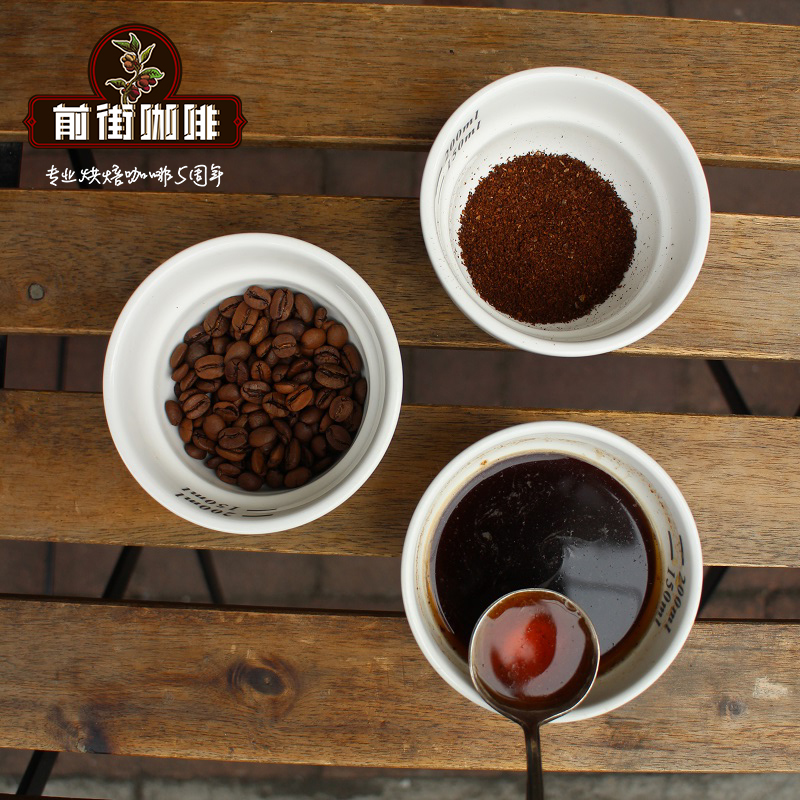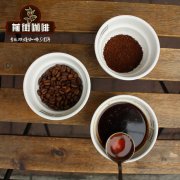What is the third wave of coffee? is there any difference between the third wave of coffee and boutique coffee?

The third wave of coffee, we always come across this phrase in coffee shops or online. But what does it actually mean? How is it different from specialty coffee? What are the first, second and fourth waves?
It is not easy to define the third wave. You will hear different explanations everywhere-some even contradict each other! So we contacted some industry experts and asked them how to define it. This is their view.
The third wave? What happened to the first two?
Fast Coffee History: in the 1960s, coffee consumption began to grow exponentially. For the first time, coffee became widespread. This marks the first wave.
The second wave is accompanied by an improvement in the quality of coffee. Big companies such as Starbucks are starting to use coffee shops as a profitable business. Coffee began to become a luxury rather than a necessity.
More importantly, we are beginning to realize the importance of the entire supply chain from producers to consumers. Raw bean buyers began to pay attention to the place and mode of production of coffee, and eventually went to consumers.
So, if these are the first and second waves, what is the third wave? What makes the third wave of coffee different?
"I've been in this industry for more than 20 years, and I think the third wave is really a way to appreciate quality products," Matt Milletto of Water Avenue Coffee told me.
There are two key words: "appreciation" and "quality". For Matt, it's both about the way we drink coffee and the way we think.
Similarly, Dismas Smith of Caffe Ladro in Seattle said: "the third wave of coffee does not accept the old traditional way of growing coffee or making coffee."
In Dismas's answer, we can also see the importance of each participant in the supply chain: producers, importers, roasters, baristas and consumers. Unlike the first wave of coffee, which involves the way consumers get coffee, the third wave of coffee is the result of everyone's hard work.
However, these are still vague concepts. Let's break down the third wave into more details.
The main characteristics of the third wave
Improved coffee quality, more direct trade, a greater emphasis on sustainability, lighter roasting methods, innovative brewing methods-these are inherent in the third wave of coffee. We pursue sweetness, complexity and uniqueness in the brewing process. Moreover, we are happy to pay more to receive this fee.
But when talking to industry professionals, there is another thing: customer service.
Tetsu Kasuya, the 2016 world champion in coffee brewing, told me: "thanks to direct trade, our baristas and bakers can tell consumers the story behind coffee beans."
Similarly, says Matt Milito (Matt Milletto): "drinking specialty coffee produced in the right way and all the added value of the supply chain is the basis of good experience. This experience is a combination of education, knowledge and hospitality. "
The third wave is about making consumers feel different. Part of it is customer service, and the other part is sharing the story behind the tragedy. The story was created by producers, importers, bakers and baristas. It explains why coffee is different, why consumers can taste certain flavors, and why high-quality coffee requires so much work.
More channels of communication between production and consumption, including direct trade and social media, also make this kind of consumer education possible.
The third wave of VS boutique coffee: what's the difference?
You often hear the news of the alternate use of "boutique coffee" and "third wave coffee", so I would like to ask the interviewees if they found a difference between the two. Answer: yes.
In fact, Sarah Dooley, marketing manager at Slayer Espresso, said: "the third wave of coffee is a stupid title for people who need a cup of coffee. It may even annoy me a little, depending on the context. The third wave is not drinking coffee; it's a guest-loving mentality in everything. "
So, if the third wave is different from the major, what is the major? Well, the Special Coffee Association (SCA) gives coffee a score of 100. Coffee with a score of more than 60 is considered commercial; at 80 or more, they are rated as "professional". These excellent coffees are usually the product of specific microclimate and soil, production practices and elaborate processing (removing coffee pulp from coffee beans).
"specialty coffee is an important ingredient in the evolution of quality service because it ensures the quality of coffee beans through a qualified Q-graders scoring system," says Sarah Dooley.
The fourth wave: are we there?
Recently, we have heard people talking about the fourth wave-causing a lot of controversy. Is the fourth wave possible? Even if we don't know, are we still experiencing it?
It's ugly. In the third wave, we already have high-quality coffee, meaningful trade relationships, innovative brewing methods, understanding of the importance of production and processing, and so on.
However, Dismas Smith told me that he believed it was possible. "the fourth wave will be the most advanced sport at the professional level. I have discussed it with several people and we will not give up the fourth wave. "
He told me the idea: "the fourth wave can be seen as an understanding of coffee science." We will discuss the precise knowledge of soil, coffee plants and coffee beans in more depth. "
The third wave of coffee: a sport, an experience, a growing focus on consumer education and services. No matter how you define it, I believe we are lucky to witness the development of the industry. As people pay more attention to production and quality, it is leading to fairer and better coffee, which benefits all aspects of the coffee supply chain.
So the next time you walk into the third (or fourth) wave coffee shop, don't be afraid to ask the barista for more information about your drink. After all, this is the third wave.
Important Notice :
前街咖啡 FrontStreet Coffee has moved to new addredd:
FrontStreet Coffee Address: 315,Donghua East Road,GuangZhou
Tel:020 38364473
- Prev

What is the difference between Arabica and Robusta? Robusta began to be valued by people.
The long history of coffee attracts many people. For the third wave of coffee, enthusiasts want to know every step of its creation: farmers who manage plantations, workers who harvest and process coffee, and roasters looking for perfect roasting features. From the beginning of the seed in time, it becomes a tree, produces beautiful white flowers and smells of jasmine. Then the fruit turns into a cherry, and
- Next

Coffee tasting do you really know the sour coffee? what are the sour coffee?
Remember the first cup test class, I, like many others, was the most difficult to understand the flavor curve and taste wheel. It all tastes good to me. Of course, some are sour than others, but they are still coffee. In the end, I think it will be easier to remember the names of these different varieties of coffee and then remember the relevant flavor characteristics. Over the next few years, this is how I managed to become a middle school student
Related
- Beginners will see the "Coffee pull flower" guide!
- What is the difference between ice blog purified milk and ordinary milk coffee?
- Why is the Philippines the largest producer of crops in Liberia?
- For coffee extraction, should the fine powder be retained?
- How does extracted espresso fill pressed powder? How much strength does it take to press the powder?
- How to make jasmine cold extract coffee? Is the jasmine + latte good?
- Will this little toy really make the coffee taste better? How does Lily Drip affect coffee extraction?
- Will the action of slapping the filter cup also affect coffee extraction?
- What's the difference between powder-to-water ratio and powder-to-liquid ratio?
- What is the Ethiopian local species? What does it have to do with Heirloom native species?

